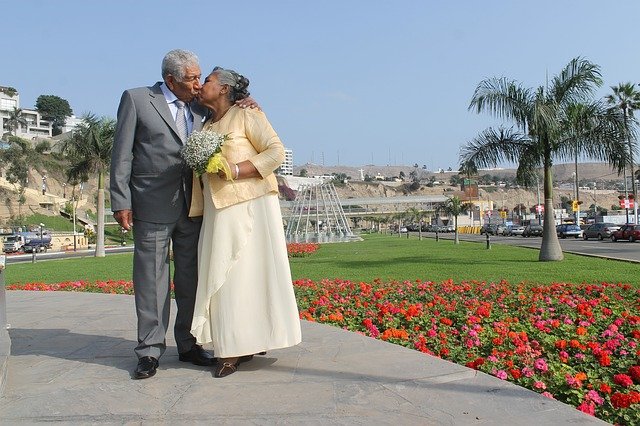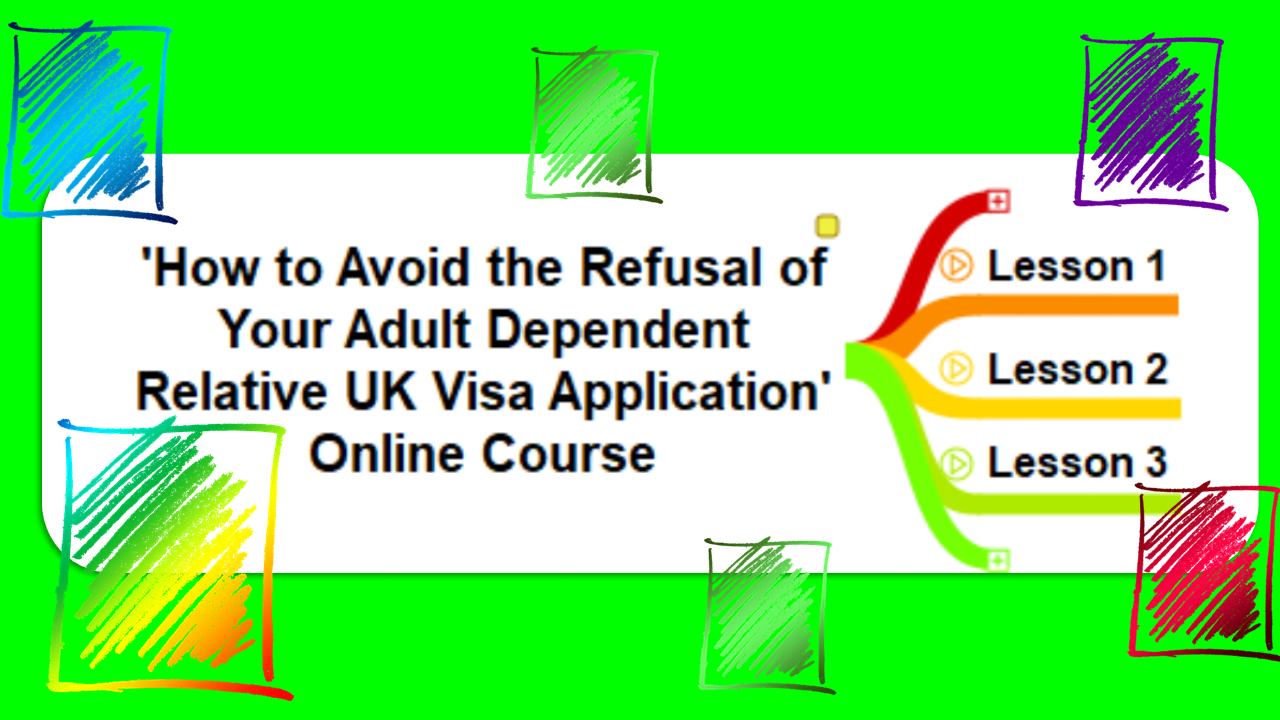Exceptional Circumstances and Adult Dependent Relative UK Visa Rules
Please note: The information in this article is outdated. For the most current insights and updates, we encourage you to read my latest article on this topic.
Your Adult Dependent Relative UK Visa will be granted if you meet only three requirements:
- The Validity Requirements
- The Suitability Requirements
- The Eligibility Requirements
If you would like to have a detailed overview and have a deep understanding of what it involves to make a successful application, you can attend the ‘How to Avoid the Refusal of Your Adult Dependent Relative UK Visa Application’ Online Course’.
However, it will probably help if, in this article, I provide you with a brief summary of the rules.
A Brief Summary of the Rules

At the risk of simplifying things quite a bit, you’ll meet the validity requirements if you get the visa application procedure right.
The suitability requirements are all about showing that you are of good character. Also, to meet this requirement, you’ll need to meet all compliance rules (if applicable). In addition, you’ll need to repay all debts to NHS (above £500) and pay the Home Office’s litigation costs (if applicable).
The eligibility requirements consist of three elements:
- The relationship requirements
- Care requirements
- Financial and accommodation requirement
Most Refusals Happen because of Care Requirements
Most refusals happen because adult dependent relatives cannot show that they meet care requirements.
In other words, they have difficulty showing that:
- as a result of age, illness or disability, they require long-term personal care to perform everyday tasks; and that
- the care is either:
- unavailable in their country of origin (even with the practical and financial help of the sponsor); or
- it is unaffordable.
Article 8 and Exceptional Circumstances
You need to know that when you cannot meet care requirements, the decision-makers cannot refuse the application straightaway. They have a legal obligation to take the following two steps:
Firstly, they’ll need to check if you engaged Article 8 European Convention on Human Rights (the ECHR) in your application. The ECHR Article 8, in simple terms, is your right to respect for private and family life.
They should take the second step only if they did manage to find Article 8 elements in the application. In that case, the Home Office should consider exceptional circumstances (if any) that would render refusal a breach of Article 8 because it would result in unjustifiably harsh consequences for you and your family.
How to Engage Article 8 in Your Applications

It is important to understand that the Home Office usually refuses to accept that the “family life” element of Article 8 exists between adult family members unless they are partners.
In other words, blood ties, the bonds of concern and affection that ordinarily go with them, are, by themselves or together, not enough to prove the existence of family life for the purposes of Article 8.
Accordingly, to establish that family life exists between adults who are not partners, they’ll need to show something significantly stronger than normal emotional ties.
Relevant Factors when Considering Article 8 Element
It always depends on the circumstances of each case. However, there are some universal factors that are most likely to be relevant in the majority of the applications.
These factors include but not limited to: age, health and vulnerability, the closeness and previous history of the family, the applicant’s dependence on the financial and emotional support of the family, and the prevailing cultural tradition and conditions in the country where the applicant lives.
If the decision-maker established the existence of Article 8 elements, they’ll need to assess whether there are exceptional circumstances that would render refusal a breach of Article 8.
Exceptional Circumstances
According to the Rules, a breach will arise if such refusal would result in ‘unjustifiably harsh consequences for the applicant, their partner, a relevant child or another family member whose Article 8 rights would be affected by a decision to refuse the application.’
The Home Office and case law explains that “exceptional” does not mean “unusual” or “unique”. All cases are unique. A number of them are unusual.
Instead, “exceptional” means circumstances in which refusal of the application would result in unjustifiably harsh consequences for the individual or their family such that refusal would not be proportionate under Article 8.
We, therefore, need to define the term ‘unjustifiably harsh consequences’ and analyse the proportionality assessment.
Unjustifiably Harsh Consequences
According to the Home Office, “unjustifiably harsh consequences” involve a harsh outcome/s for the applicant or their family, which is not justified by the public interest.
Nationality, Immigration and Asylum Act 2002, part 5A clarifies what ‘public interest’ means.
These include, in particular, the public interest in maintaining effective immigration controls. Also, it is in the public interest to prevent burdens on the taxpayer and promote integration through migrants. This is usually achieved by being financially independent and being able to speak English.
If you can prove “unjustifiably harsh consequences”, the decision-maker will then be considering whether a refusal would be proportionate.
The Proportionality Assessment

It gets even more complicated with the proportionality assessment.
The case law clarifies that there is no one magical single fact, which will help you pass the proportionality test.
The Home Office does not give any specific examples of where a person can unambiguously pass this test. According to their guidance:
‘where the applicant does not meet the requirements of the rules and has established their family life in “precarious” circumstances (for example, when they have limited leave to enter or remain in the UK), something “very compelling” is required to outweigh the public interest in refusal. Likewise, where family life is formed or exists with a person outside the UK who has no right to enter the UK and does not meet the requirements of the rules for entry clearance, Article 8 does not require that they be granted entry in the absence of such exceptional circumstances.’
However, the Singh case (Singh v The Secretary of State for the Home Department [2015] EWCA Civ 630) makes it clear that there is no presumption that family life does or does not exist and that it is a fact-sensitive question.
Conclusion
If you intend to submit your Adult Dependent Relative UK visa application, do your best to always engage Article 8 in the application. The circumstances of each case are so different that it is not possible to give specific instructions as to how you can do this.
However, you should always try to show something significantly stronger than normal emotional ties. You’ll also need to prove that the refusal will have unjustifiably harsh consequences for all family members.
Further Help
I would like to finish this article by warning UK Visitors’ family visa holders. If you are thinking of applying as an Adult Dependent Relative, you need to be aware that your application (if unsuccessful) may be lethal for all future UK visa applications. In the online course, you’ll get the answer to this and many other questions.

